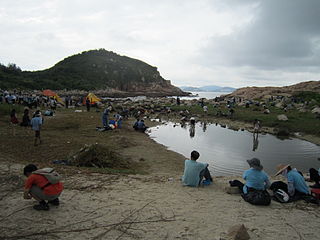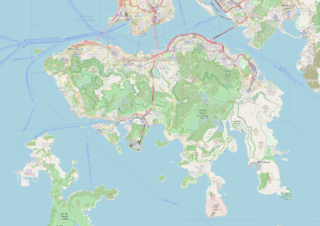 W
WThe Fourth Legislative Council of Hong Kong was the last meeting of the legislative branch of the Hong Kong Special Administrative Region Government. The membership of the LegCo is based on the 2008 election. The term of the session is from 1 October 2008 to 30 September 2012, during the second half of the Donald Tsang's administration and first two months of the Leung Chun-ying's term in office. The meeting place was moved from the Legislative Council Building to the new built Legislative Council Complex in 2011. The Democratic Alliance for the Betterment and Progress of Hong Kong remained the largest party with 10 seats. Notable newcomers to the Legislative Council included Regina Ip, Priscilla Leung, Wong Yuk-man, Tanya Chan, and Paul Tse.
 W
WThe Fifth Legislative Council of Hong Kong is the former meeting of the legislative branch of the Hong Kong Special Administrative Region Government. The membership of the LegCo is based on the 2012 election. The term of the session is from 1 October 2012 to 30 September 2016, during the term in office of the Chief Executive Leung Chun-ying. Due to the new arrangements agreed in a contentious LegCo vote in 2010, the session consists of the new total of 70 seats in LegCo, ten more than previously, with 35 members elected in geographical constituencies through direct elections, and 35 members in functional constituencies, in which five District Council (Second) functional constituency seats each represent all 18 District Councils of Hong Kong voted for by all resident voters in Hong Kong. The Democratic Alliance for the Betterment and Progress of Hong Kong remained the largest party while the pan-democrats secured the one-third crucial minority. Notable new members of the LegCo members include Gary Fan from the new established party Neo Democrats and first openly gay councillor, People Power's Ray Chan Chi-chuen.
 W
WThe 2012 Hong Kong Legislative Council election was held on 9 September 2012 for the 5th Legislative Council (LegCo) since the establishment of the Hong Kong Special Administrative Region.
 W
WAnti-parallel trading protests took place in Hong Kong between 2012 and 2015 against parallel traders importing goods from Hong Kong to Mainland China. Protestors claim that parallel trading has caused a shortage of household goods and an increasing inflation rate. Parallel trading and the protests have exacerbated the Hong Kong-Mainland conflict. There has also been conflict between local shop owners and citizens as the parallel trading boosts shop sales but raises the local prices of daily necessities.
 W
WThe Henry Tang illegal basement controversy was an event that began on 13 February 2012 over the unapproved basement extensions of two adjoining residences in Kowloon Tong owned by Henry Tang, a 2012 Hong Kong Chief Executive election candidate. Despite the impact on Tang's credibility, the scandal did not prevent his nomination on 20 February that year.
 W
WThe 2012 Hong Kong Chief Executive election was held on 25 March 2012 to select the Chief Executive of Hong Kong (CE), the highest office in the Hong Kong Special Administrative Region (HKSAR), by a 1,193-member Election Committee (EC) to replace the incumbent Chief Executive. Won by the former non-official convenor of the Executive Council of Hong Kong Leung Chun-ying, the election was the most competitive as it was the first election with more than one pro-Beijing candidate since the 1996 election.
 W
WThe 31st Hong Kong Film Awards presentation ceremony took place in Hong Kong Cultural Centre on 15 April 2012. The hosts for the awards ceremony are Eric Tsang, Bowie Tsang, Gordon Lam, Ronald Cheng and Angelababy. TVB, Now TV and RTHK Radio 2 were the live broadcasters of the ceremony, with other networks airing simulcasts across the world.
 W
WThe Hong Kong plastic disaster refers to a marine pollution event in adjacent waters of Hong Kong in 2012. Typhoon Vicente hit Hong Kong and its adjacent waters on 23 July 2012, causing seven containers, six of which were loaded with polypropylene pellets produced by China Petroleum & Chemical Corporation (Sinopec), in the container ship of China Shipping Container Lines (CSCL) to fall into and float on the Hong Kong south waters after the storm. Some containers were destroyed by waves, releasing plastic pellets into the ocean, which became marine debris scattering across Hong Kong's south waters and beaches with water flow, resulting in wide environmental and ecological pollution and threatening local fishery.
 W
WThe Legislative Council (Amendment) Bill 2012 is a Bill of the Legislative Council of Hong Kong. It is an amendment to the Legislative Council Ordinance Cap. 542 § 39 to disqualify a resigned member of the Legislative Council from participating in a subsequent by-election. The original proposal was to avoid by-elections but it sparked vast controversies in the community. The revised Bill restricts a resigned member of the Legislative Council from standing in any by-elections within six months.
 W
WOccupy Central was an occupation protest that took place in Central, Hong Kong from 15 October 2011 to 11 September 2012. The camp was set up at a plaza beneath the HSBC headquarters. On 13 August 2012, the High Court granted an injunction against the continuation of the protest, and ordered the occupants to leave by 9pm on 27 August. But protesters defied the order and remained in place until 15 days after the deadline, when court bailiffs were sent to evict the occupants. Ending on 11 September, the movement remains one of the lengthiest Occupy movements in the world.
 W
WParallel trading in Hong Kong is the phenomenon of China parallel traders taking advantage of multiple entry visa policy to import goods from Hong Kong to Mainland China, causing shortages of household goods in various locations starting in the North District and expanding to Tuen Mun, Yuen Long, Tai Po and Shatin. Problems related to this include increasing congestion from day traders, overloading of infrastructure and disruption of the everyday lives of residents in northern districts of Hong Kong.
 W
WTyphoon Vicente, known in the Philippines as Tropical Depression Ferdie, was the strongest tropical cyclone to strike the Chinese province of Guangdong since Hagupit in 2008, and was regarded as the strongest storm to affect Hong Kong and Macau in more than ten years. The eighth named storm and third typhoon in the 2012 Pacific typhoon season, Vicente began life as a tropical depression on July 18, 2012 north east of the Philippines. Vicente soon steadily moved into the South China Sea, and began to intensify above warm sea waters, and began explosive intensification early on July 23, and started to charge toward the Guangdong region prompting the Hong Kong Observatory (HKO) to issue the Hurricane Signal, No. 10, the first since York in 1999. The Macao Meteorological and Geophysical Bureau also hoisted the Signal No. 9 for the first time since York and after the transfer of sovereignty over Macau. Late on the same day, Vicente made landfall over Taishan in Guangdong, China.
 W
W